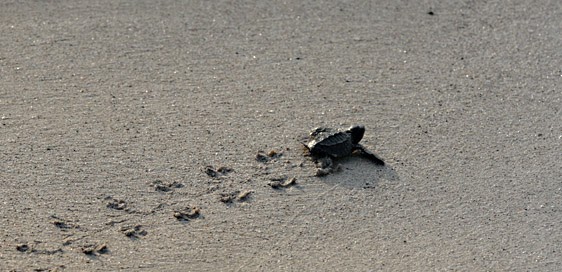by Marcela Torres
If you’re still not convinced that the tourism
industry can actively help save our planet, you’ll be surprised by the
initiatives we’re covering in this week’s blog in anticipation to this year’s
Earth Day celebration, on April 22nd. From recycling to hands-on conservation
projects, tourism companies and not-for-profit organizations across the world
are contributing to conserve the environment for future generations. Hopefully,
you will be inspired to play a part!
Just a Drop
Did you know that 1.4 million children die
every year from diarrhea because of unsafe drinking water and inadequate
sanitation? That is 4,000 children per day. “I started to think about how I
could encourage businesses in the travel and tourism industry to give back to
the places in which they operated – thus improving the lives of children and
their families,” says Fiona Jeffery, who launched Just a Drop in 1998 at the
World Travel Market (WTM), in London.
Fiona named the charity ‘Just a Drop’ to
reinforce that it only takes a small amount of money to help prevent the
unnecessary loss of life that occurs many developing countries due to the lack
of safe, clean water. Until now, Just a Drop has funded projects in more than
25 countries in Africa, Asia, Latin America and the Caribbean, Central and
Eastern Europe and the Middle East, providing water and sanitation to
marginalized communities.
To ensure sustainability of the projects, the
organization works with beneficiary communities from start to finish, building
local capacity and directly linking funders to specific projects in the field,
so they can see very clearly the difference their support has made.
In fact, Fiona is also the Chair of the WTM,
where she has promoted the celebration of World Responsible Tourism Day (WRTD)
since 2007, stressing the unique opportunity the tourism industry has in
helping reduce poverty and conserve natural and cultural resources throughout
the planet. “We have the means and the responsibility to help the local
communities of the places that we visit,” she states.
Clean the World
Have you ever wondered what happens with the
bits of bar soap you leave behind in hotels when traveling? Well, Shawn Seipler
and Paul Till did. They were shocked to find out how many bars of soaps are
thrown away and how much they could help prevent millions of deaths caused by
hygiene-related illnesses every day. So, they created the Florida-based Clean the World Foundation in 2009.
What do they do? They collect, sort and process
discarded soap, shampoo, conditioner and lotion product donations from
participating hospitality partners and hygiene products from manufacturers.
They recycle these product donations at the facilities in Orlando, Florida, and
then deliver these recycled products to domestic homeless shelters and
impoverished countries suffering from high death rates due to acute respiratory
infection and diarrheal disease.
Until now, Clean the World has put over 9.5
million soap bars and 200,000 pounds of shampoo and conditioner back into human
use, while eliminating over 600 tons of waste. Check out their video to learn more!
Saving Turtles and
More
Many tourism businesses are undertaking
initiatives to conserve wildlife throughout the world. In Mexico, for example,
several eco-resorts have successfully developed marine turtle conservation
programs –some of them since the mid-1990s- in which guests, staff and local
community volunteers help move turtle eggs to a protected area on the beach and
then release hatchlings to find their way to the sea.
And in the State of Queensland, in Australia,
tourism companies with permits to operate in public protected areas collaborate
with local authorities to monitor the environmental conditions of the places
they visit. Among other things, they record visitor numbers, campfire
facilities, road kills, number of species and feeding sites and any disturbance
they encounter during their trips. This helps park authorities to act quickly
in case of any emergency and keep updated information on the sites.
These are just a few examples, among many
others carried out in other places. Are you feeling inspired? I bet you are!
So, get out there and find out what you can do to save our beautiful planet and
leave it even better for the next generations.
Happy Earth Day!
This entry was originally posted by the author on April 20, 2012.

